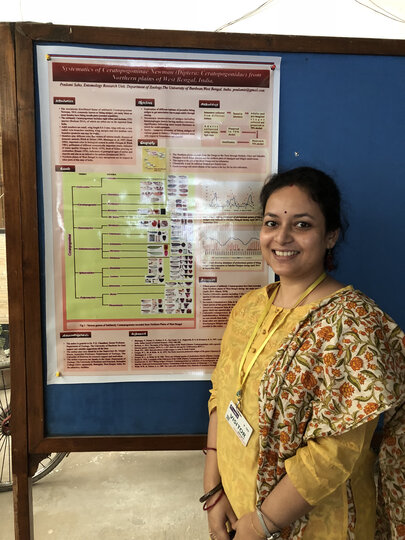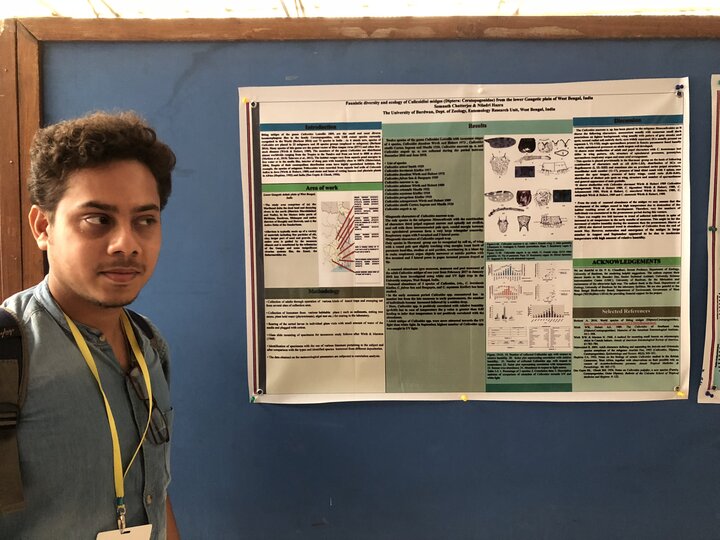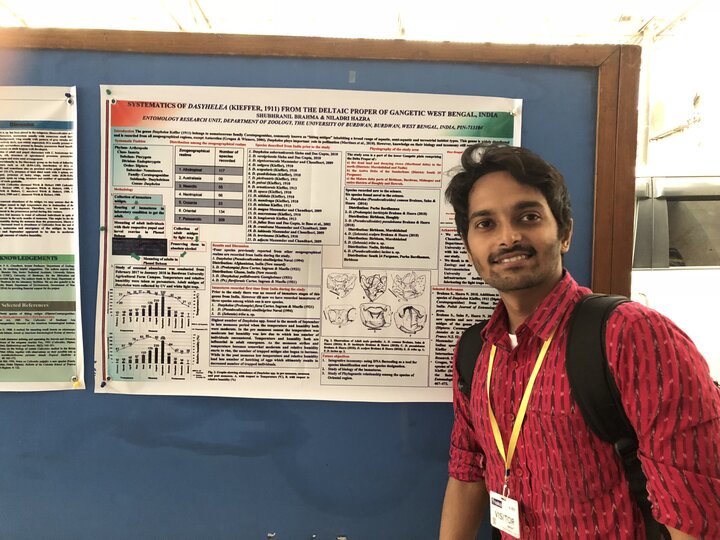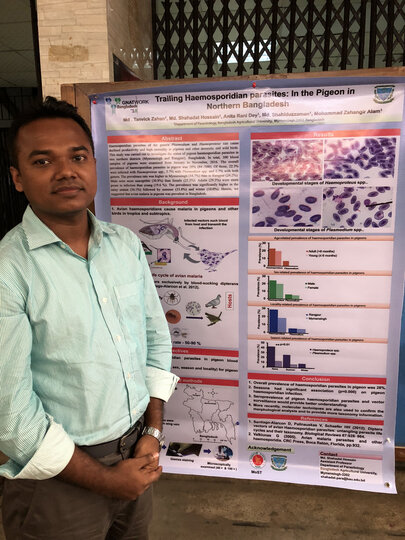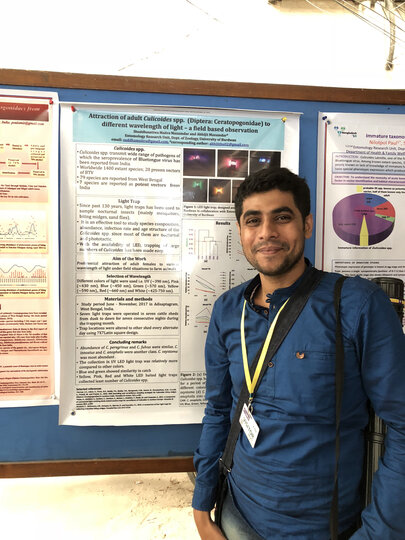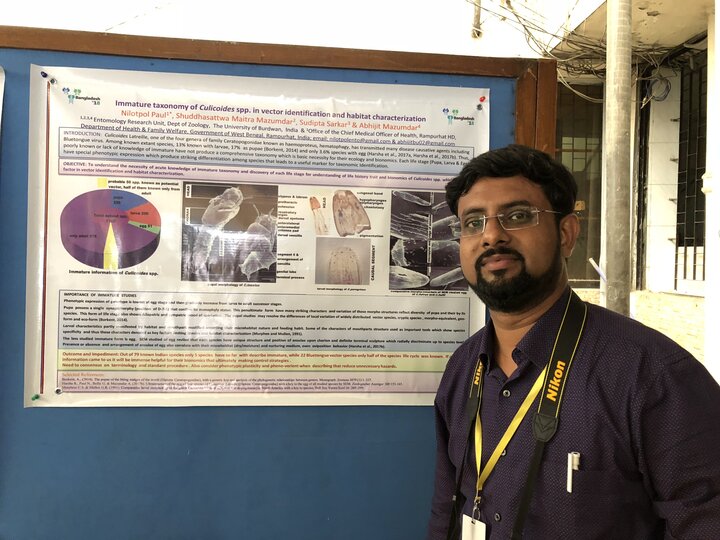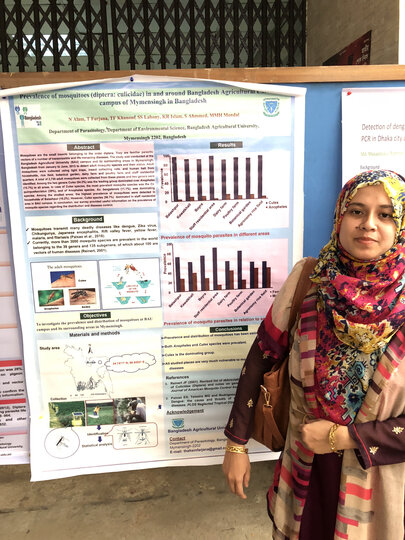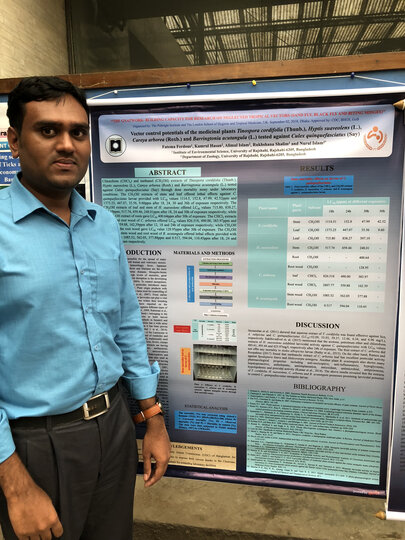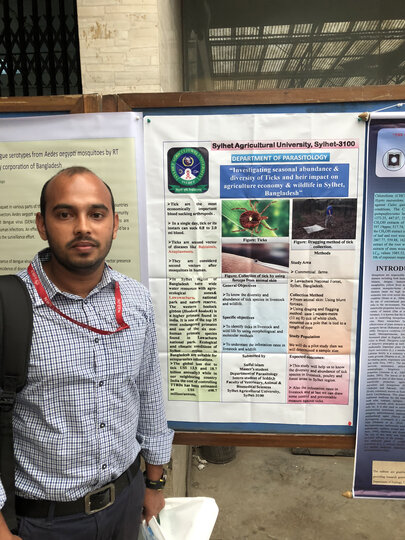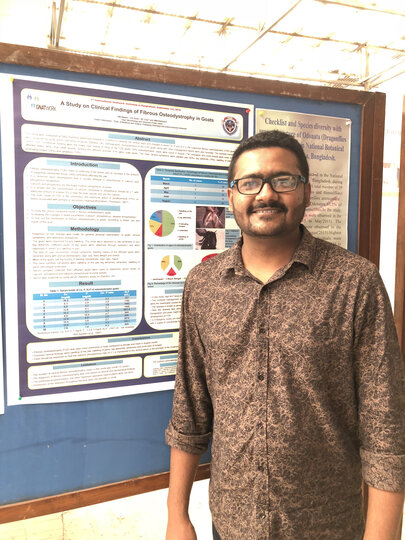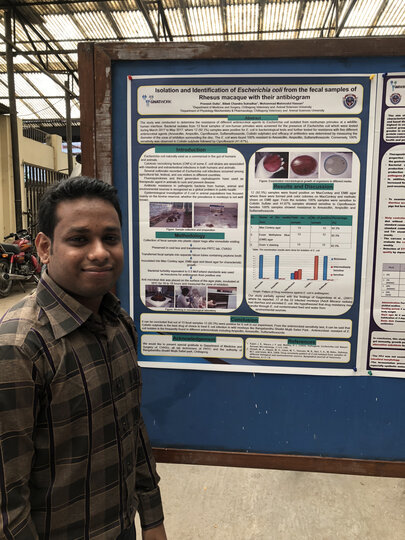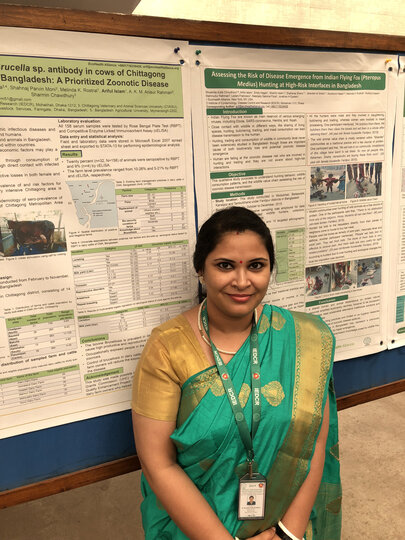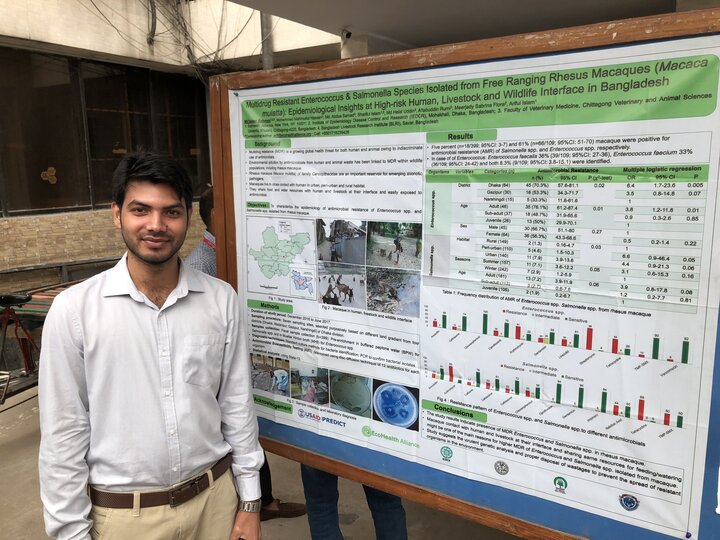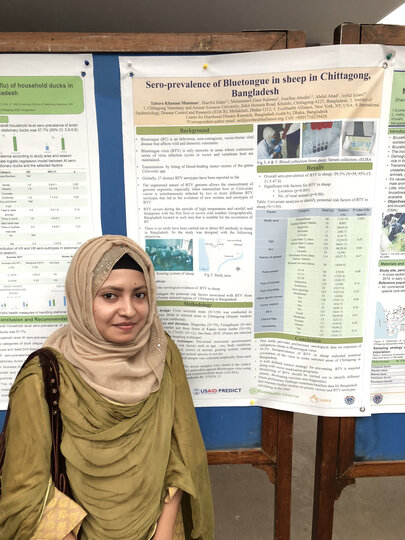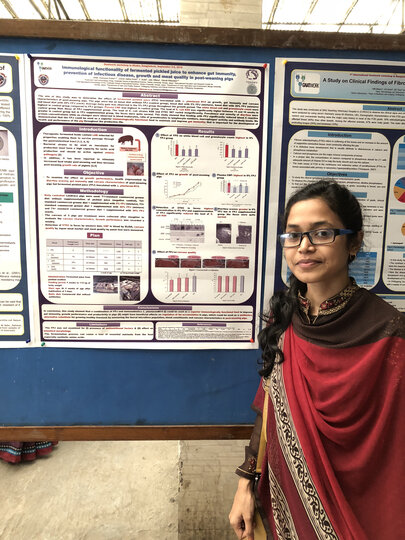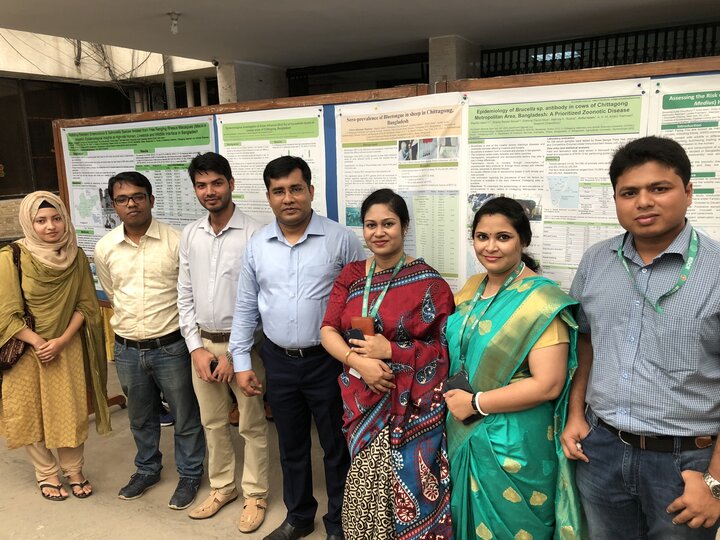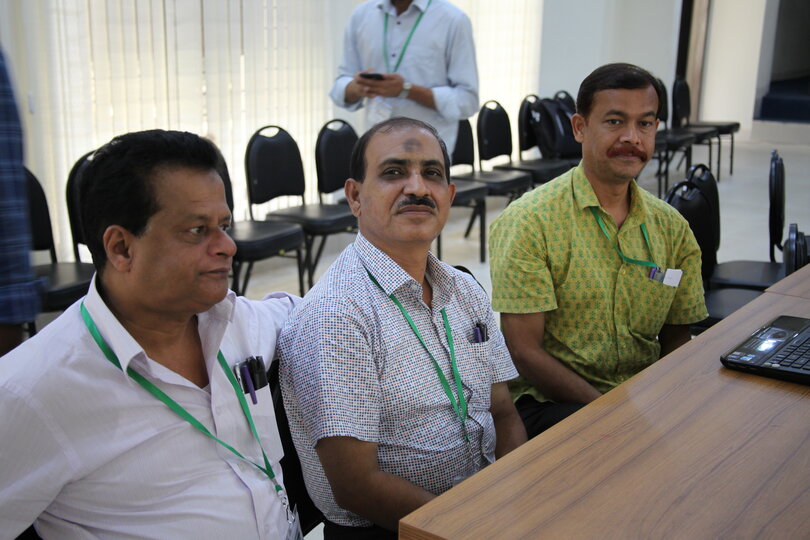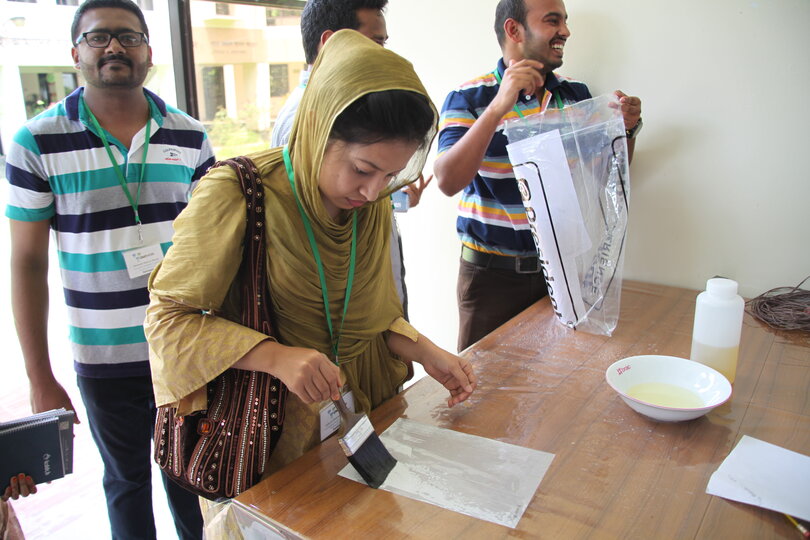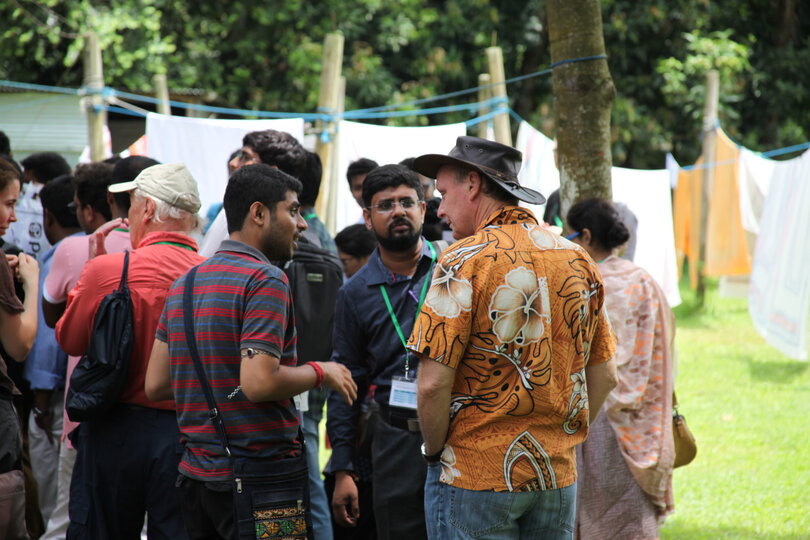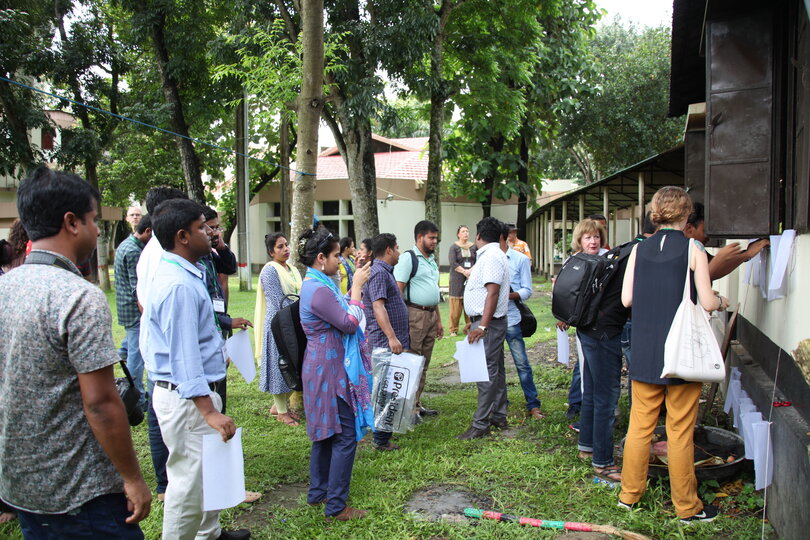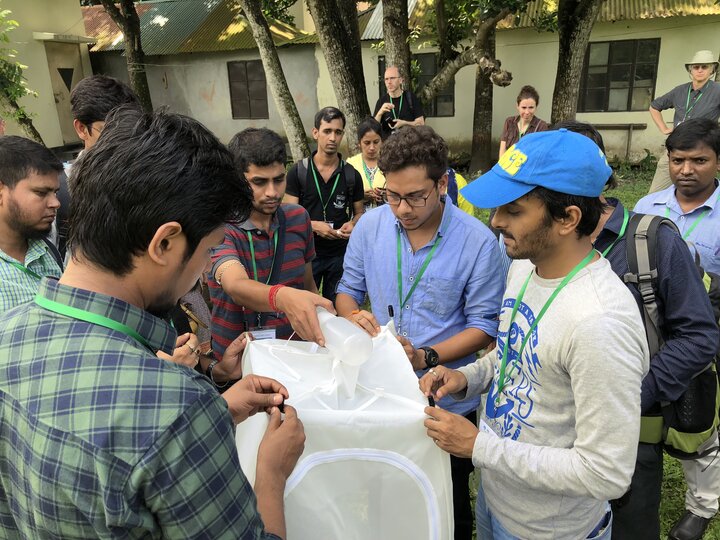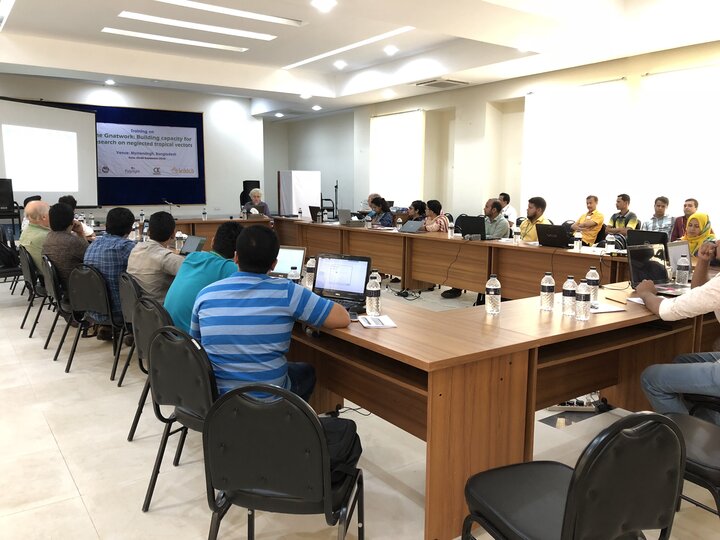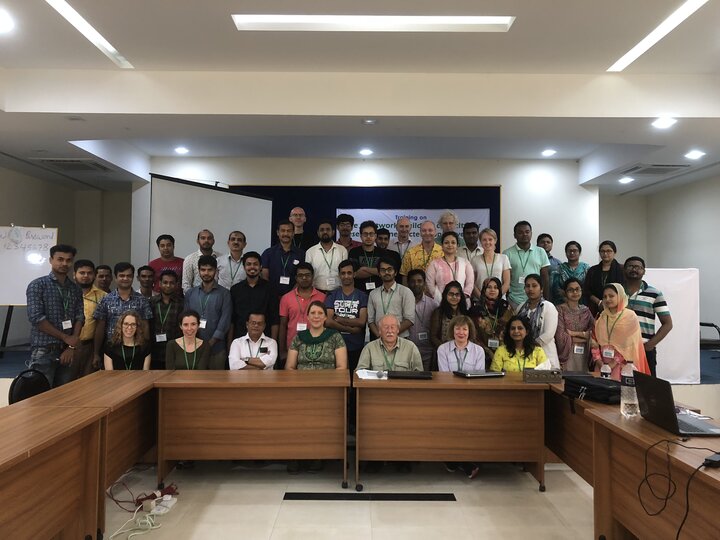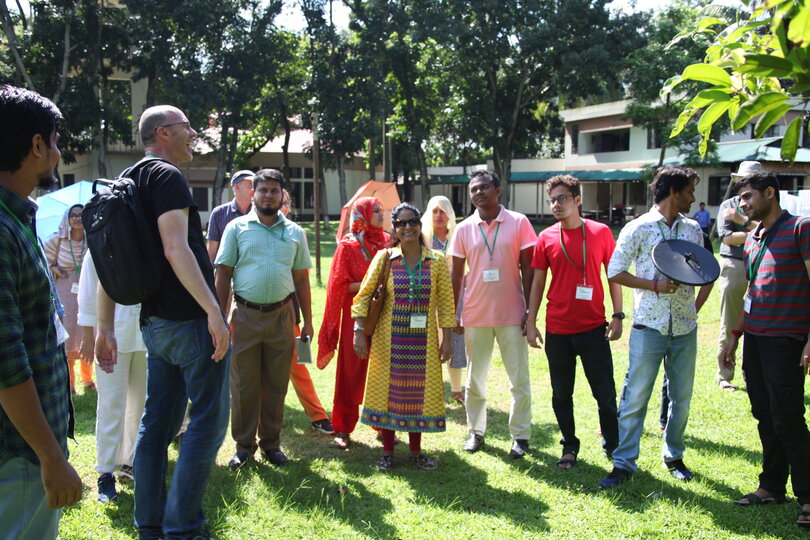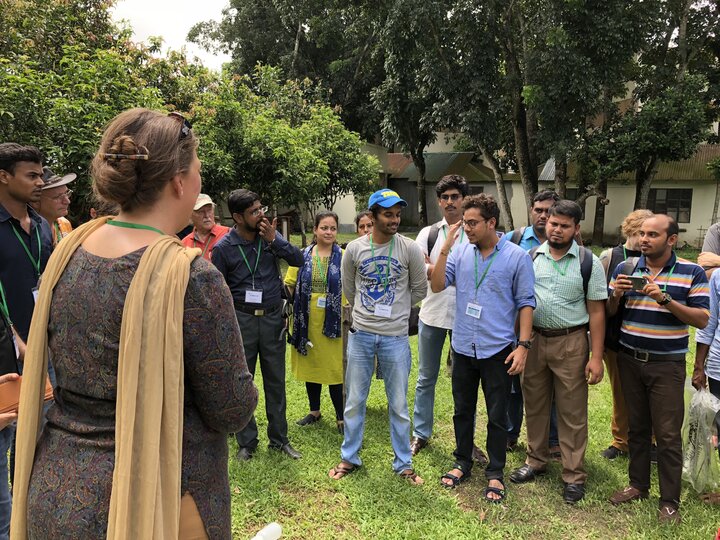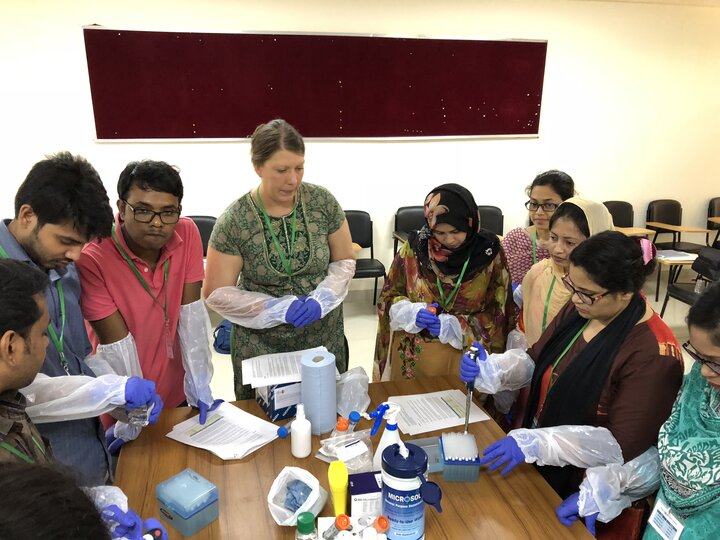Bangladesh '18
The first international Gnatwork workshop was held in Bangladesh on the 2-6th September 2018. Following a tour of the International Centre for Diarrheal Disease Research, Bangladesh (icddr,b), the week started off with a conference day in Dhaka, to bring together entomological researchers from across Bangladesh. In the first session, “Introduction to the Gnatwork and vectors”, members from the Gnatwork Management Board introduced the biology and vectorial roles of blackflies, sandflies and Culicoides biting midges. This was followed by three presentations given by speakers from Bangladesh and India who described current vector research within Southern Asia. The final theme of the day “Trends and opportunities in vector research”, saw international experts present on topics including spatial modelling and the 3D virtual history of parasites.
During the conference, recipients of Gnatwork early-career travel bursaries presented posters on their current research. We were really impressed with the wide range of topics covered, from ecological studies of adult Culicoides, to abundance studies of mosquito larvae and assessment of disease emergence in flying foxes. Abstracts from the poster session are included within the Gnatwork Conference Booklet, which is available in the sidebar or through the website resources pages.
After the conference, the Gnatwork Management Board, invited experts and early-career researchers travelled to the BRAC learning centre (Mymensingh) for a four-day training workshop. The workshop began with a day of interactive seminars on basic experimental design, statistical methods and the publication process, to demonstrate the importance of planning throughout the research process.
The following day started with a series of talks on trapping techniques for blackflies, sandflies and biting midges, highlighting the similarities and differences between vector groups. After the theory session, participants enjoyed assembling sticky traps with Professor Mary Cameron around the site, followed by field demonstrations of emergence traps, UV and incandescent light-suction traps.
In order to be able to identify the vectors on the sticky trap catches, the penultimate day began with a series of lectures on the morphological features of vector groups. After identification and counts of vectors in each trap catch, participants applied statistical methods to analyse the data. Practical sessions on DNA Barcoding for molecular identification of vectors also began this day, starting with DNA extraction for PCR.
On the final day of the workshop, participants were trained in slide mounting and visited Surjakanta Kala-azar Research Centre (SKKRC) molecular laboratory for a DNA Barcoding PCR and gel analysis training session. The workshop finished with a closing session by Dr Simon Carpenter, who awarded certificates and poster prizes:
1st: Md. Shahadat Hossain (Poster 15)
"Prevalence and seasonal distribution of haemosporidian parasites in pigeons of Mymensingh and Rangpur districts, Bangladesh"
2nd: Umme Salma Amin (Poster 12)
"Immunological functionality of fermented pickled juice to enhance gut immunity, growth and meat quality in post-weaning pigs"
We would like to thank all the hosts in Bangladesh, the attending members of the Management Board and external experts for all their hard work, organisation and training given throughout the conference. Also thank you to the early-career participants for their enthusiasm and thirst for learning, we look forward to keeping in touch with you to see how your career progresses.

